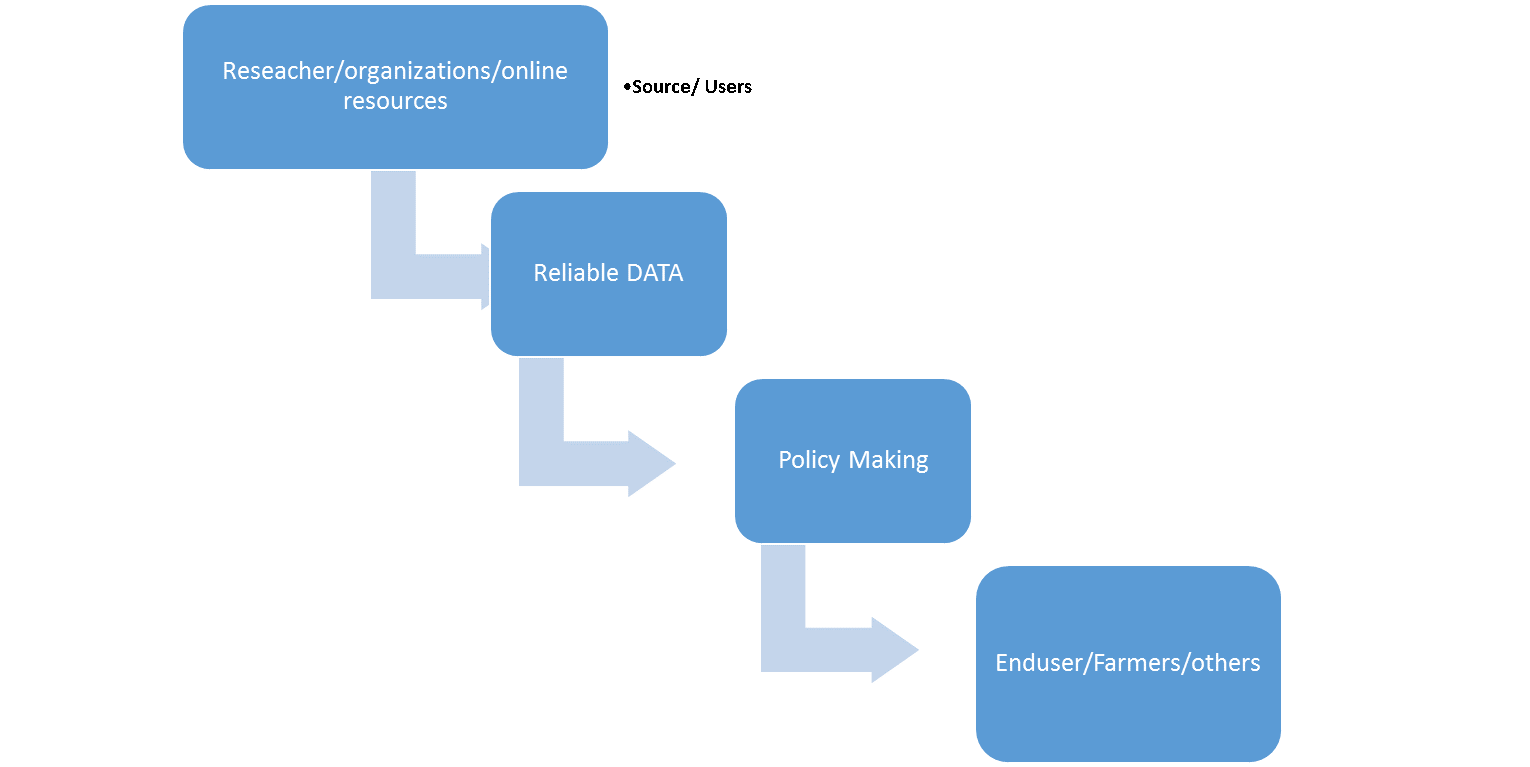Blessing Agada, University of Agriculture Makurdi and NAPP Scholar at MSU 2018
Data may be information in raw or unorganized form (such as alphabets, numbers, or symbols) that refer to, or represent, conditions, ideas, or objects. It could also be values of quantitative or qualitative variables that are measured/collected, reported and analysed for use. http://www.businessdictionary.com/definition/data.html
While the concept of data is commonly associated with scientific research, data is collected by a huge range of organizations and institutions, including businesses (e.g., sales data, revenue, profits,), governments (e.g. unemployment, literacy rates) and non-governmental organizations (e.g., censuses of the number of farmers by non-profit organizations). . Data as a general concept refers to the fact that some existing information or knowledge is represented or coded in some form suitable for better usage or processing. https://www.merriam-webster.com/dictionary/data
In Nigeria, one of the constraints to low agricultural productivity identified in many quarters amongst the many other challenges, is data availability. In informal and formal gatherings related to the various sectors of the economy, this is one of the most raised issue of concern. From the data on population, to data on essential input in the agricultural sector to data on climatic variables and health. Data on improved seed variety based on agroclimatic zones when made available to farmers and used appropriately can improve crop productivity that translate to better livelihood and income. All are necessary to achieve meaningful success with food security and self-sufficiency. Realizing the importance of data collection and availability, a lot of sensitization and interventions towards acquiring reliable data for use in evidence based researches and policies that will be problem solving has been resonating in many decision making quarters. The launch of, the Global Open Data for Agriculture and Nutrition (Godan) initiative is one of such programs aimed at ensuring data availability.
The National Bureau of Statistics, Central Bank of Nigeria (CBN), International Tropical Research Institute(IITA) and the Federal Ministry of Agriculture and Rural Development, are some organizations that serve as go to places for needed data to make investment decisions,implement policies and carry out researches. Others are the World Bank and the FAO statistics all found online. Narrowing down to the agricultural sector, and zeroing in on small holder farmers, how do we boost their production capacity amidst these challenges?

The small holder farmer sometimes called “small scale” or “resource poor farmers” are farmers who have limited resources in comparison to other farmers in the sector. They are defined as farmers who own small parcels of land and grow crops on subsistence levels with a few cash crop, relying heavily on family labor. They Manage about 80% of farmland (usually between 0 -5 hectares) in sub Saharan Africa and Asia, with women making up 43% of the labor force. Yet, this fraction of the agricultural sector actually feed us. see link.
http://www.fao.org/fileadmin/templates/nr/sustainability_pathways/docs/Factsheet_SMALLHOLDERS.pdf. How do we help to bring timely resources of weather information, fertilizer recommendations, improved seed varieties by agro-ecological zones, market reports to the knowledge of end users? A few of these resources are available already, some mobile applications that are downloadable to smart phones and are user friendly, but then one concern is internet connectivity. So, it is not like “there is dearth of data” what I see is more a lack of avenue to channel the resources and information to the end-users. Most times, people don’t know where to source for the needed data (Both, based on the definition, I have added it at the top)This also applies to other sectors of the economy . Being well informed will both in the short and long term impact on productivity.
Market reports, weather information, current fertilizer recommendations, soil fertility and productivity maps, soil testing, improved varieties and current Good Agricultural practices(GAPs) should be easily accessible A kind of one stop shop for reliable accurate information that is accessible to all, whether online, in Agricultural Development Project Schemes (ADPs) and relevant Ministries. Flyers and pamphlets with possible translations into various languages, meetings with farmer groups, and cooperatives, are a few of my proffered solutions to help with making data available.
These are my thoughts. Agree or Disagree? Your view counts!

